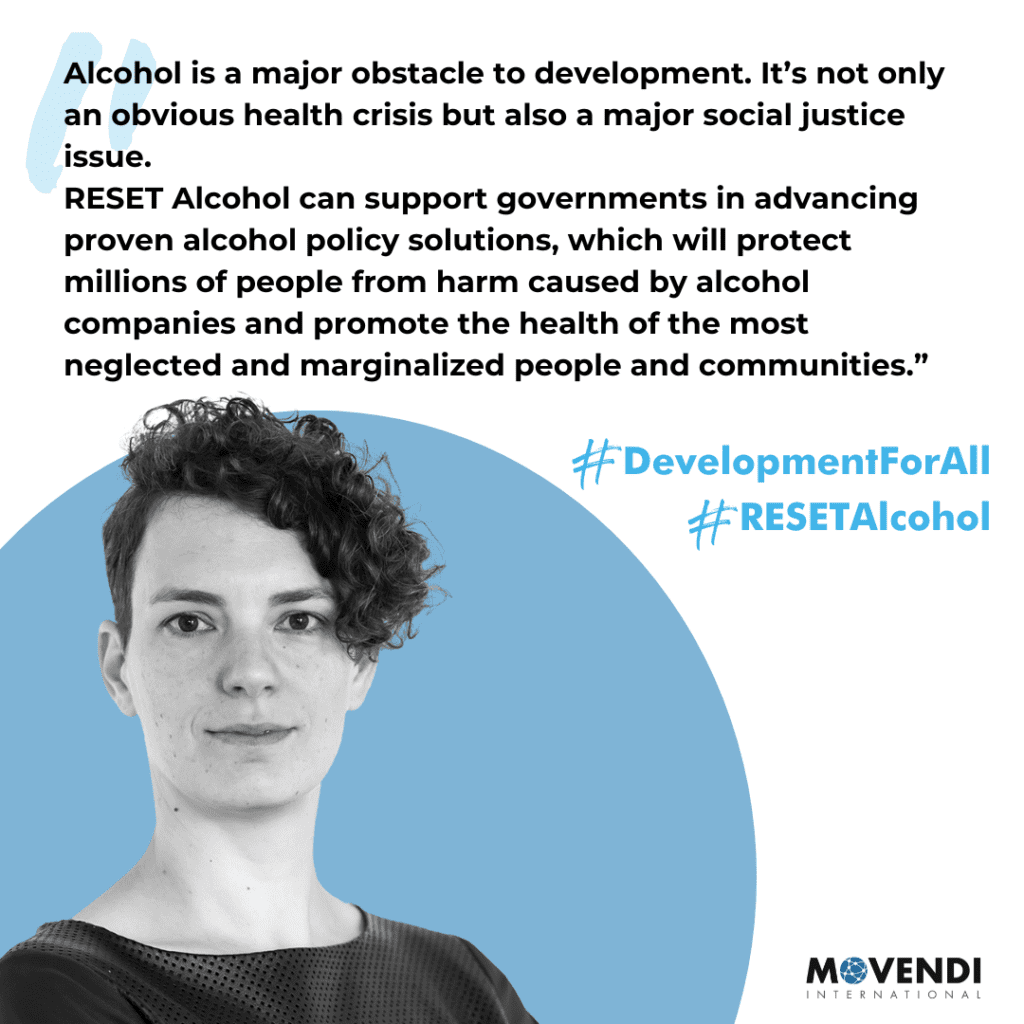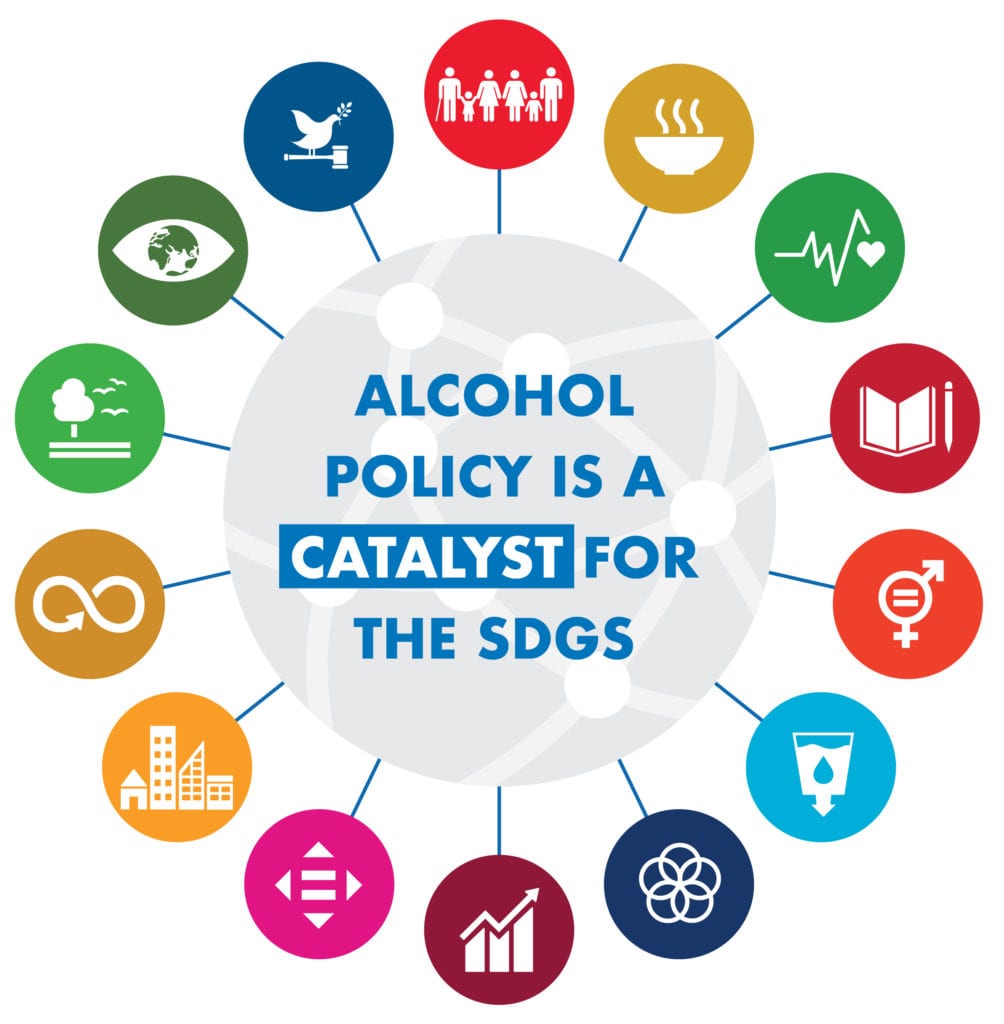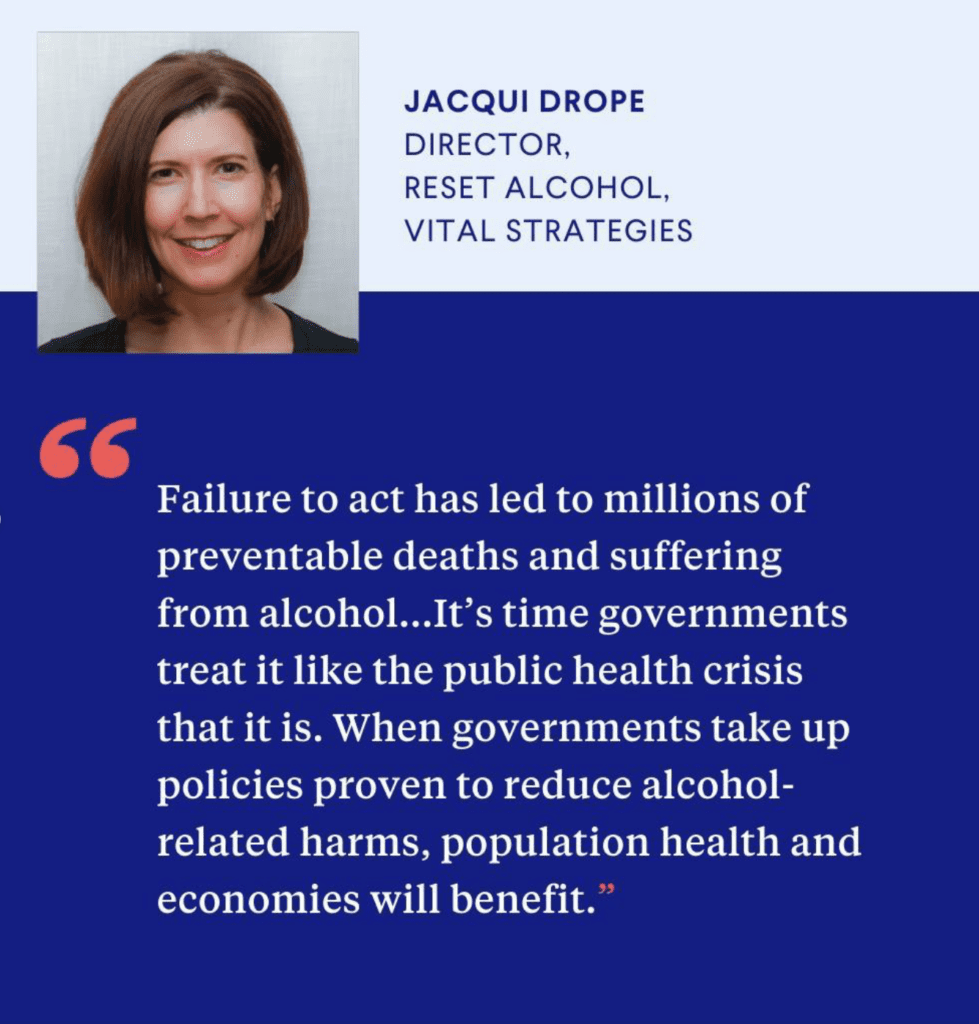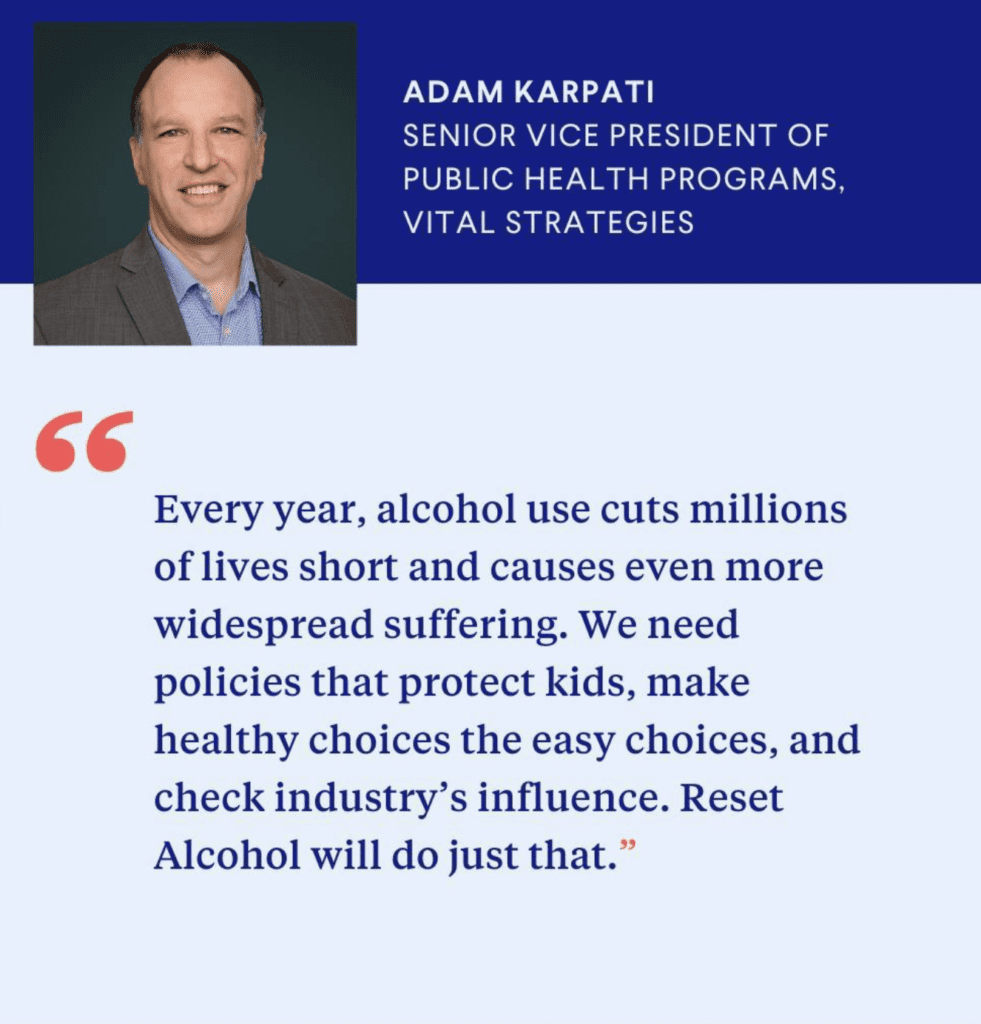Alcohol Issues Newsletter October 31 – November 04, 2022
This week’s Alcohol Issues highlights
- New Zealand: Alcohol Law Improvements Agreed, Brought Underway.
- People View “Responsible Consumption” Labels As Ploy by Alcohol Companies.
- People Want Breast Cancer Prevention. Alcohol Companies Want Pink-Washing.
This week’s most popular stories
- Chile: High-Risk Alcohol Use Very Prevalent Among Students.
- South Africa Plans to Improve Alcohol Law.
- Ireland: Government Plans to Make Alcohol MORE Available
- Alcohol Reason for 1 in 5 Deaths of Young Adults in United States.
Most Popular on the News Center
Special Feature – No. 37
New Initiative Launches to Address Neglected Global Health Crisis of Alcohol Harms
Movendi International partner in groundbreaking RESET Alcohol Initiative
$15 million philanthropic award doubles existing global funding; RESET Alcohol will work in fifteen countries primarily in Latin America, Africa, Asia, with GiveWell as the donor. Public health work to protect more people from alcohol harm is vastly underfunded relative to the alcohol burden, and the philanthropic award that founds RESET Alcohol roughly doubles existing global funding.
RESET Alcohol is a collaboration of six global organizations: Vital Strategies, which is leading the initiative; Movendi International; the University of Illinois Chicago; the Global Alcohol Policy Alliance (GAPA); the Non-Communicable Disease (NCD) Alliance; and World Health Organization (WHO).
RESET Alcohol is an initiative that brings together national governments, civil society, research organizations, and global leaders in public health and alcohol policy to develop and implement evidence-based alcohol policies from the World Health Organization’s WHO SAFER technical package, with a focus on the three most cost-effective and high-impact alcohol policy solutions, especially raising public health oriented alcohol taxes.
Over three years, the initiative will support 15 or more countries to develop policies including raising the price of alcohol via taxation, regulating availability, and restricting alcohol marketing.
Key statements
Vital Strategies and Movendi International statements for the launch of the RESET Alcohol Initiative. Funding for RESET Alcohol was awarded via a grant directed to Vital Strategies from GiveWell, a nonprofit dedicated to finding outstanding giving opportunities and publishing the full details of its analysis to help donors decide where to give. GiveWell recommends high-impact, cost-effective charities backed by evidence and rigorous analysis.
Movendi International is a key partner in RESET Alcohol.
The case for prioritizing action on alcohol harm
Overall, trends in alcohol consumption, alcohol’s contribution to the global burden of disease, and progress towards global targets are all pointing the wrong direction.
Alcohol remains one of the leading risk factors contributing to the global burden of disease. It is the eight leading preventable risk factor of disease. The contribution of alcohol to the global disease burden has been increasing from 2.6% of DALYs* in 1990 to 3.7% of DALYs in 2019.
In low- and middle-income countries alcohol is the fourth fastest rising risk factor for the global disease burden.
Alcohol is the second largest risk factor for disease burden in the age group 10-24 years. Alcohol is the largest risk factor for disease burden in the group 25-49 years.
Modelling forecasts that global targets to reduce alcohol use and harm will not be met.
Lack of progress and failure to implement high-impact alcohol policy solutions
Evidence shows that alcohol policy development has been ineffective over the past decade. With a few notable exceptions, most countries have failed to develop public health oriented alcohol policy solutions in the last decade.
Overall, trends in alcohol consumption, alcohol’s contribution to the global burden of disease, and progress towards global targets are all pointing the wrong direction.
- Without action, Africa could see an increase in both the absolute number and proportion of people consuming alcohol, the amount consumed per capita and heavy episodic alcohol use.
- Southeast Asia has seen a 29% increase in per capita alcohol use since 2010.
- Out of 51 countries in the WHO European Region, only 16 reached the target of a 10% reduction of overall alcohol consumption between 2010-19. But 17 countries saw increases in alcohol use. Almost no progress was achieved since 2016 in the implementation of Best Buys alcohol policy solutions.
- Alcohol remains highly affordable in the WHO Americas region. Between 2012-16, per capita consumption among alcohol users only increased, with 1 in 5 alcohol users consuming heavily.
- Progress in the formulation and implementation of national and local alcohol policy solutions has been insufficient.
- Most countries, especially low- and middle-income countries (LMICs), have NOT implemented a comprehensive set of alcohol policies.
- No low-income country has reported increasing resources for implementing alcohol policy in the last decade.
- Many countries are failing to implement the alcohol policy best buy solutions, with LMICs more likely to have fewer evidence-based and cost-effective policies.
Alcohol affordability
- 95% of reporting countries implement alcohol excise taxes.
- Few use such taxes as a public health policy to reduce consumption.
- Less than half use price strategies such as adjusting taxes to keep up with inflation and income levels, imposing minimum pricing policies, or banning selling below cost or volume discounts.
Alcohol availability
- Less than one-third of countries have regulations on outlet density and days of alcohol sale.
- Some countries, mainly LMICs in Africa, still have no legal minimum purchase age.
Alcohol marketing
- Most countries have some policies on alcohol advertising.
- Alcohol marketing regulation continues to lag behind technological innovations and e-commerce, including rapidly developing new delivery systems.
- Most of the countries that reported no restrictions across all media types were located in the African or Americas regions.
The Alcohol Issues Podcast
The Alcohol Issues Podcast is an original production by Movendi International. It’s a show about current alcohol issues of global importance. Through in-depth conversations with policy makers, community leaders and scientists, we explore alcohol policy issues, discuss landmark scientific studies, and expose the alcohol industry.
The Alcohol Issues Podcast is a unique resource to stay updated about latest developments in the field of alcohol policy and science. We make complex issues more easily understandable and drive the global conversation about modern alcohol policy solutions.




